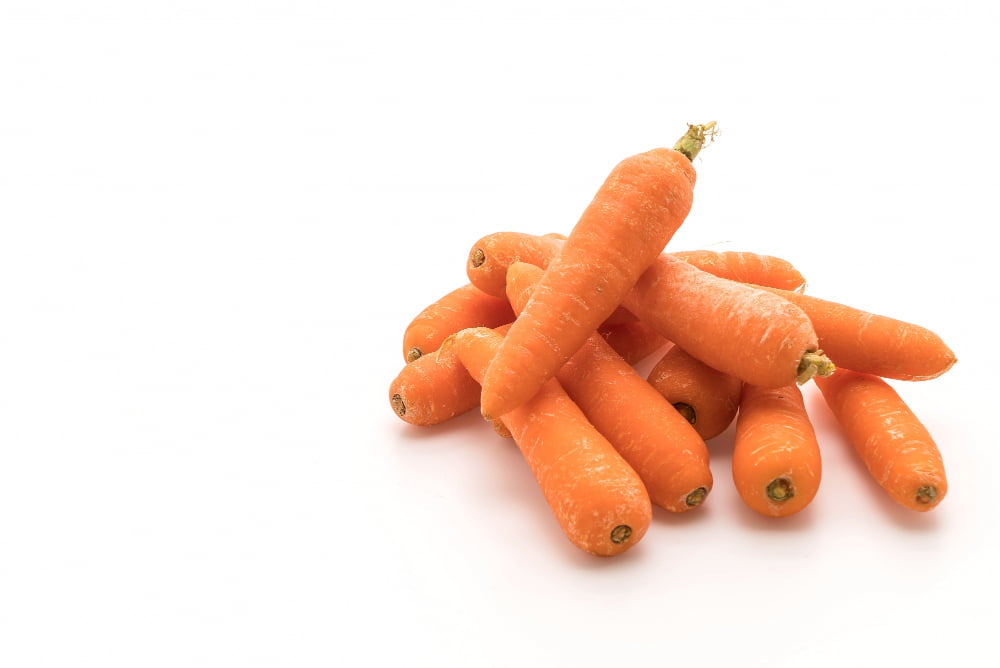Maintaining good oral health is essential for overall well-being, and many people wonder if the classic image of bunnies chomping on carrots translates to a benefit for human teeth. This article dives into the science behind carrots and dental health, exploring their nutritional value, potential effects on teeth, and any related risks. We’ll also provide insights on how to incorporate carrots into a tooth-friendly diet.
Table of Contents
Nutritional Benefits of Carrots
Based on information from WebMD.com, one of the most reliable sources of health and medical information on the internet reviewed by doctors and health experts, a single serving of half a cup of carrots contains:
- 25 calories
- 6 grams of carbohydrates
- 2 grams of fiber
- 3 grams of sugar
- 0.5 grams of protein
- 73% of your daily vitamin A requirement
- 9% of your daily vitamin K
- 8% of your daily potassium
- 8% of your daily fiber
- 5% of your daily vitamin C
- 2% of your daily calcium and iron
As an excellent source of beta-carotene (vitamin A), it is good for healthy skin, bones, and teeth as well as fighting sickness, according to the Department of Health and Social Services in Canada. It says, carrots are also a fair source of vitamin C, which keeps our gums, teeth and skin healthy.
Effects of Carrots on Teeth
The effects of carrots on teeth extend beyond mere nutrition, offering unique benefits that contribute to overall dental health. So to answer the question of: “Are Carrots Good for Teeth?”, let’s explore how this crunchy vegetable promotes good oral health:
Mechanical Cleaning and Saliva Boost
The crunchy texture of raw carrots acts like a natural toothbrush, with its fibers gently scraping away plaque and food particles as you chew. This mechanical cleaning, combined with the increased saliva production stimulated by chewing carrots as highlighted in a review titled “Study of different varieties of carrot and its benefits for human health: A review” published in the Journal of Pharmacognosy and Phytochemistry, helps rinse away debris and bacteria, creating a cleaner mouth environment and reducing the risk of cavities. Saliva also plays a vital role by neutralizing acids produced by bacteria, further protecting tooth enamel.
Gum Health and Overall Hygiene
Chewing carrots provides a gentle massage to the gums, promoting blood circulation and gum health. The fiber in carrots also contributes to increased saliva flow, further supporting healthy gums and overall oral hygiene. While not a replacement for brushing and flossing, snacking on raw carrots between meals can be a valuable addition to your dental care routine, helping to keep teeth clean and reduce plaque buildup.
Nutritional Support for Teeth
Carrots are rich in Vitamin A, a crucial nutrient for maintaining the health of tooth enamel and soft tissues in the mouth. Vitamin A supports the integrity of enamel, helping to prevent cavities and tooth erosion. Additionally, carrots contain antioxidants like beta-carotene, which may offer further protection against oral diseases and promote overall oral health.
Potential Risks
While carrots offer numerous benefits for dental health, it’s essential to consider potential risks associated with their consumption. Here are some factors to be mindful of:
Sugar Content
While a healthy vegetable, carrots contain natural sugars, similar to other fruits and vegetables. These sugars are less harmful to teeth than refined sugars found in candies and sodas. However, excessive consumption of sugary foods and beverages, including carrots, can still contribute to tooth decay. The bacteria in the mouth feed on sugars and produce acids that erode tooth enamel, leading to cavities. Therefore, it’s essential to moderate your intake of sugary foods, including carrots, and practice good oral hygiene habits to minimize the risk of tooth decay.
Overconsumption
While carrots are nutritious, consuming them in excessive amounts can have adverse effects on dental health. Eating too many carrots can lead to an imbalance in the oral microbiome, the community of bacteria in the mouth.
A disrupted microbiome can increase the risk of dental problems such as cavities, gum disease, and bad breath. Additionally, overconsumption of carrots can contribute to other health issues such as digestive problems due to their high fiber content. Therefore, it’s important to enjoy carrots in moderation as part of a balanced diet.
Potential for Staining
Although less common than with other foods like coffee or red wine, consuming large quantities of carrots can potentially lead to tooth staining over time. Carrots contain natural pigments, such as beta-carotene, which can impart a slight yellow or orange hue to the teeth if consumed in excess. While this staining is usually superficial and can be removed with regular brushing and professional dental cleanings, it’s something to be aware of, especially if you’re prone to tooth discoloration.
Impact on Oral pH
While carrots stimulate saliva production, which helps neutralize acids in the mouth, excessive consumption can still affect the pH balance. An acidic environment in the mouth can contribute to enamel erosion and tooth decay over time. Therefore, it’s essential to consume carrots as part of a varied diet and practice good oral hygiene to maintain a healthy pH balance in the mouth.
Conclusion
While carrots offer a surprising number of benefits for your teeth, moderation is key. Be mindful of potential risks like sugar content and overconsumption. If you have any concerns about how carrots or other dietary choices might affect your oral health, schedule a consultation with Eastman Dental Group to discuss your unique needs and create a personalized dental care plan.
